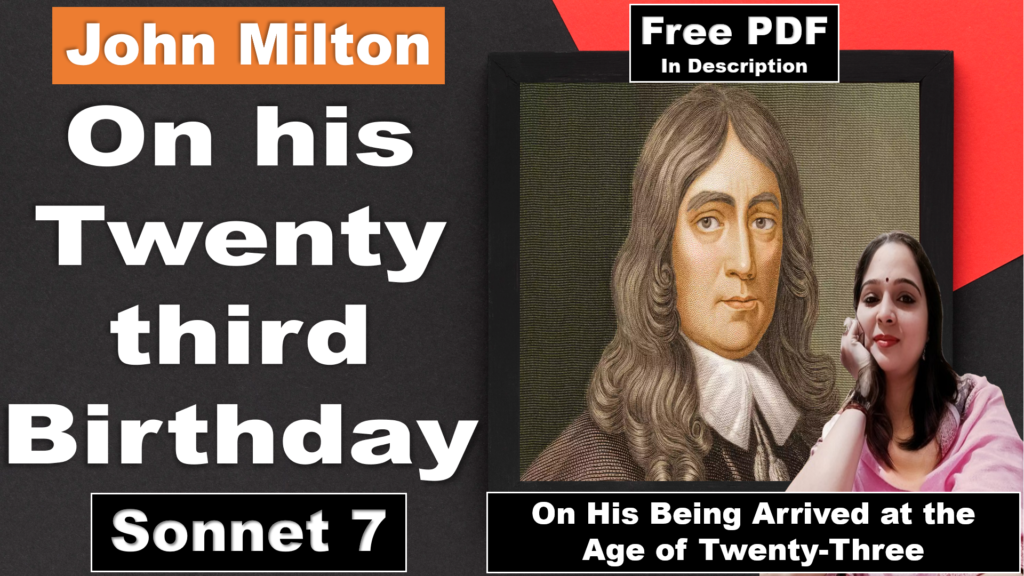
On his twenty third birthday by John Milton | How soon hath time | On his having arrived at the age of twenty-three | On his twenty third birthday | John Milton | Explanation | Summary | Key Points | Word Meaning | Critical Appreciation | Questions Answers | Free PDF Download – Easy Literary Lessons
On His Twenty third Birthday
(On his having arrived at the age of twenty-three)
How soon hath Time
How soon hath Time, the subtle thief of youth,
Stol’n on his wing my three-and-twentieth year!
My hasting days fly on with full career,
But my late spring no bud or blossom shew’th.
Perhaps my semblance might deceive the truth
That I to manhood am arriv’d so near;
And inward ripeness doth much less appear,
That some more timely-happy spirits endu’th.
Yet be it less or more, or soon or slow,
It shall be still in strictest measure ev’n
To that same lot, however mean or high,
Toward which Time leads me, and the will of Heav’n:
All is, if I have grace to use it so
As ever in my great Task-Master’s eye.
On his twenty third birthday by John Milton
line-by-line explanation of the poem
Line 1: How soon hath Time, the subtle thief of youth,
The speaker begins by personifying time as a “subtle thief” that steals away one’s youth.
Line 2: Stol’n on his wing my three-and-twentieth year!
The speaker realizes that his twenty-third year of life has passed quickly.
Line 3: My hasting days fly on with full career,
The days are rushing by at full speed.
Line 4: But my late spring no bud or blossom shew’th.
However, the later part of my life (late spring) shows no signs of new growth or blossoming.
Line 5: Perhaps my semblance might deceive the truth
It’s possible that my outward appearance may not reflect the reality.
Line 6: That I to manhood am arriv’d so near;
that he is indeed close to becoming a man.
Line 7: And inward ripeness doth much less appear,
Furthermore, the inner maturity is even less evident.
Line 8: That some more timely-happy spirits endu’th.
The speaker compares himself to other young people who seem to be more mature than he is.
Line 9: Yet be it less or more, or soon or slow,
Regardless of whether it’s less or more, or it happens quickly or slowly,
Line 10: It shall be still in strictest measure ev’n
It will still be in accordance with the strictest standard.
Line 11: To that same lot, however mean or high,
It will be determined by fate, whether it’s humble or grand,
Line 12: Toward which Time leads me, and the will of Heav’n:
The speaker says that he is following the path that Time and God have laid out for him.
Line 13: All is, if I have grace to use it so
Everything depends on whether I have the grace to use it in that way,
Line 14: As ever in my great Task-Master’s eye.
Just as it has always been in the sight of my great Task-Master (referring to God).





